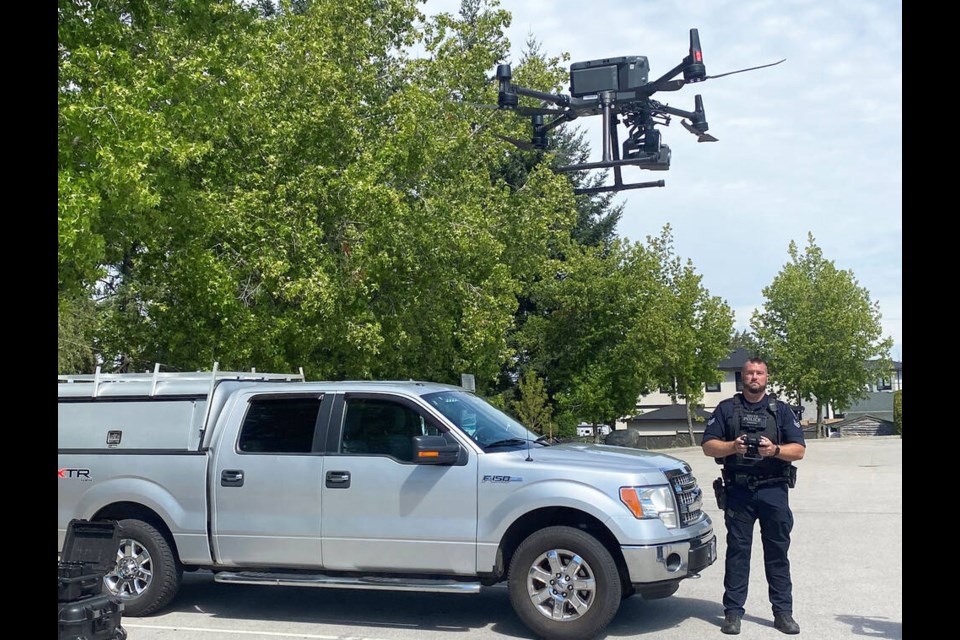They’re fast, agile, steady, highly maneuverable and can potentially help to save lives.
The Delta Police Department’s (DPD) newest drone was put to the test in its first mission on July 29, locating a missing individual who walked away that night from Delta Hospital. The individual had been admitted for physical medical issues, which were complicated by potential dementia-like symptoms.
According to the DPD, officers promptly responded to a potential sighting of the missing person at Dugald Morrison Park in Ladner, but were not able to locate the person during initial efforts.
Officers then deployed the drone, equipped with an infrared camera and spotlight. The initial efforts could not find the person, so the team extended the search to the nearby easement and farm fields.
During that expanded search, the drone’s technology proved invaluable, the DPD says.
Following the detection of a heat signature, the team used the unit’s spotlight and zoom camera technology to precisely pinpoint the individual’s location in a brush area approximately 100 meters south of the 4300-block of 57th Street.
The seamless integration of advanced technology and exemplary teamwork of officers resulted in the individual being located and taken for appropriate medical care. Without the technology, locating the person in the dark would have been a challenging task, the DPD notes.
“The DPD is dedicated to leveraging the latest technological advancements to bolster community safety and provide efficient policing services to our community. This incident exemplifies our unwavering commitment to innovation and our commitment to use of all available resources to ensure the safety and well-being of our community members,” said DPD Chief Neil Dubord in a news release.
Sgt. Jim Ingram, Officer in Charge of the Public Safety Operations, provided a demonstration of the unit on Wednesday morning.
Costing around $85,000, the drone is capable of taking steady video images even with turbulence.
The DPD’s drone program has been around for two years and, while other police department drones have been used primary for traffic reconstruction, the DPD drones are the first in the province to be used in other situations. One such instance was during a fire on Annacis Island last year when a drone was utilized to confirm the whereabouts of an individual, noted Ingram.
The drones are also available for commercial sale to anyone willing to pay the cost.
Ingram noted that, unfortunately, even though a special Transport Canada license is required, people are using them without a licence. Those caught flying one without a licence face a hefty fine in the $1,000 range.
There have been problems with people using drones to spy on others, flying drones around local airports creating safety concerns, as well as criminals in B.C. having used them to deliver drugs and cell phones to inmates in prison.
As far as privacy concerns regarding police drones, Ingram noted they are not a surveillance tool as the DPD program has a specific use, not randomly flying looking for potential criminal activity.
Ingram added that the program is simply another “tool in the toolbox” for public safety and that the City of Delta has been very good and providing funding for the department for the extra programs.




